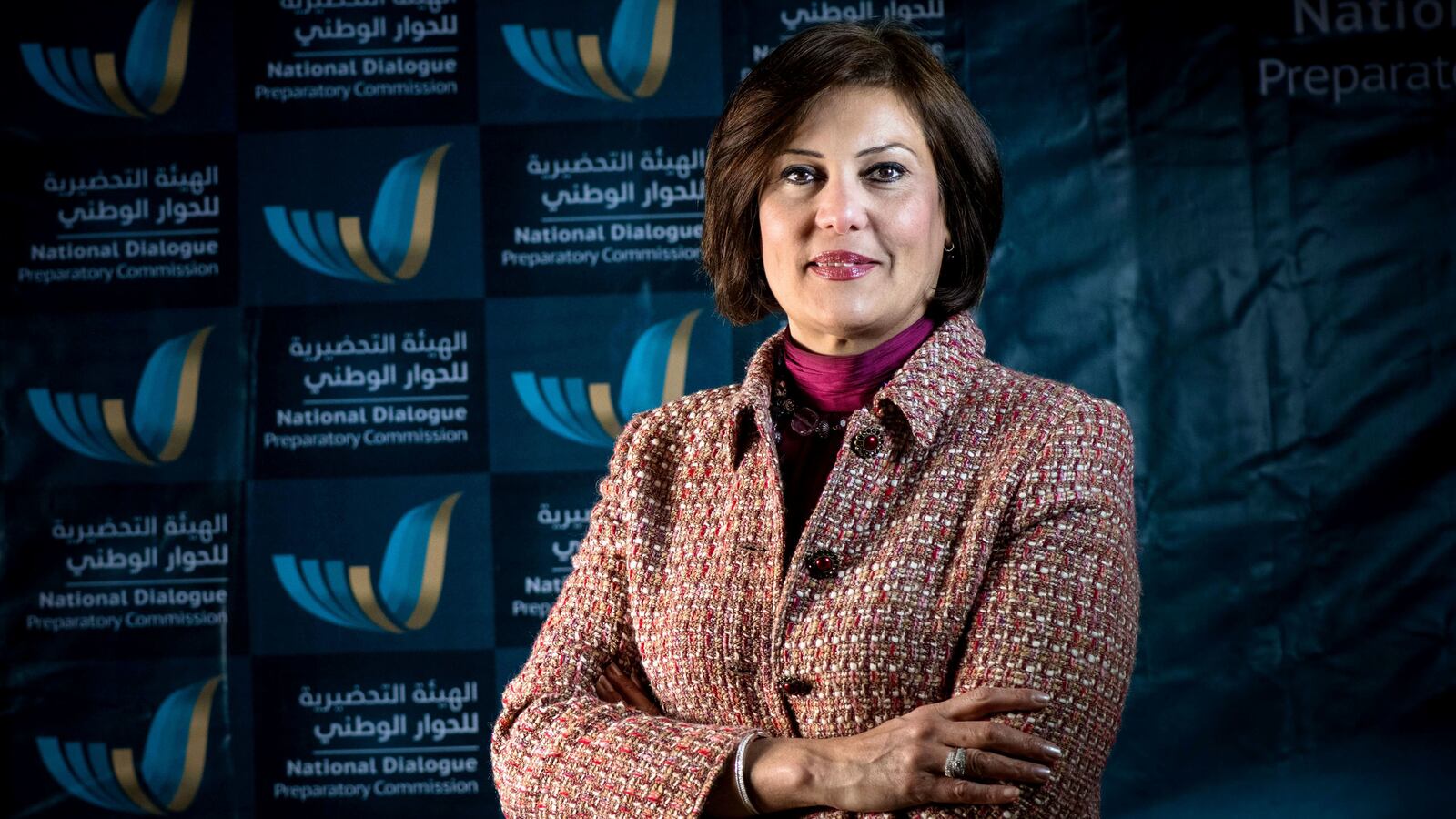The following editorial is being published anonymously to protect the identity of the author due to current threats against those fighting for democracy and human rights in Libya.
When you hear of the death of someone you admire, someone inspiring, someone formidable, and someone so courageous, there is always a sense of sadness. When that person is someone you know and have learned from, then that sadness is devastating— the pain intensifies as you mourn for them and pray for their family. But in addition to sadness, the case of the murder of Salwa Bugaighis is also terrifying. It is terrifying because Salwa defended other people's right to live, to thrive, and to succeed; and her life was cut short because of it. It is terrifying because it is the first time that a prominent women's rights activist has been assassinated in her own home. It is terrifying because there has been no clear response and no condemnation for such a heinous act from any of the political or military structures in Libya. It is terrifying because it is a clear message to everyone who opposes extremist views, anyone who values women's rights, dignity, rule of law, and the basic principles of democracy.
A pioneer, a leader, a lawyer, a mother, a friend and an inspiration to myself and countless others in Libya and around the world, I first met Salwa in 2011 at our country’s first women’s rights conference in Tripoli, just two weeks after Liberation. Having heard about Salwa’s leading role throughout the Libyan revolution and the country’s subsequent political and social transitions, I was already in awe of her. When I actually met her, she exceeded even my highest expectations. She was vibrant, passionate, compassionate, determined, courageous, self-assured, and present. She was vibrant when she spoke of our future generations, of the role that young women and men would play in the shaping of a new Libya. She was passionate about the role of human rights and the fundamental respect for dignity. She was determined—for her voice to be heard, and for it to amplify the voices of women throughout Libya.
She demonstrated unparalleled compassion for those who had struggled; be it Libyan women who had married non-Libyan men, or mothers of young men who fought on both sides of the conflict. She was courageous in her relentless calls for national dialogue and unwavering in her belief that everyone had a role in the new Libya, which she steadfastly maintained could only be achieved through legitimacy and rule of law.
Above all her virtues, however, was her presence. I have always been told that the first step to success is showing up, and that is exactly what Salwa did. She showed up for Libya when we were fighting against a dictator, and she showed up for women, for families, and for communities when she relentlessly demanded an equal role for all Libyans. Whether a grassroots campaign, a protest, or a meeting, Salwa was present and she was fearless.
Over the course of the past three years I have had the privilege to call her a friend and a mentor. I have been blessed to work with her, to learn from her, to travel with her, and even when needed, to be lectured by her. She was proud when I succeeded, and firm when I stumbled. Regardless of the obstacles in her path, she was tirelessly determined to actualize her vision for equality. For Salwa, there was always a way: when a door is closed, find a window. If there isn't a window, then break the wall!
Salwa was a force. She knew what we were up against, and she never backed down. She charged forward and inspired others to do the same. And while we mourn her, crying through box after box of Kleenex, while we recount her phenomenal story and the life she so courageously, graciously and passionately lived, we cannot ignore the responsibility we have to her and all she stood for. Despite the terror, despite the fear, we cannot back down now. We have to continue to make demands, demands for justice, rule of law, inclusion, transparency, equality and above all, we have to demand the right to be present.






